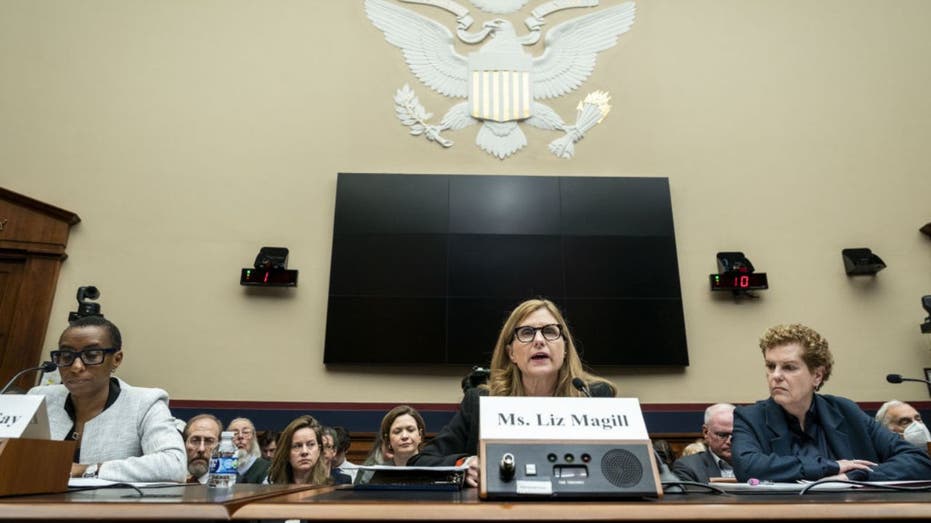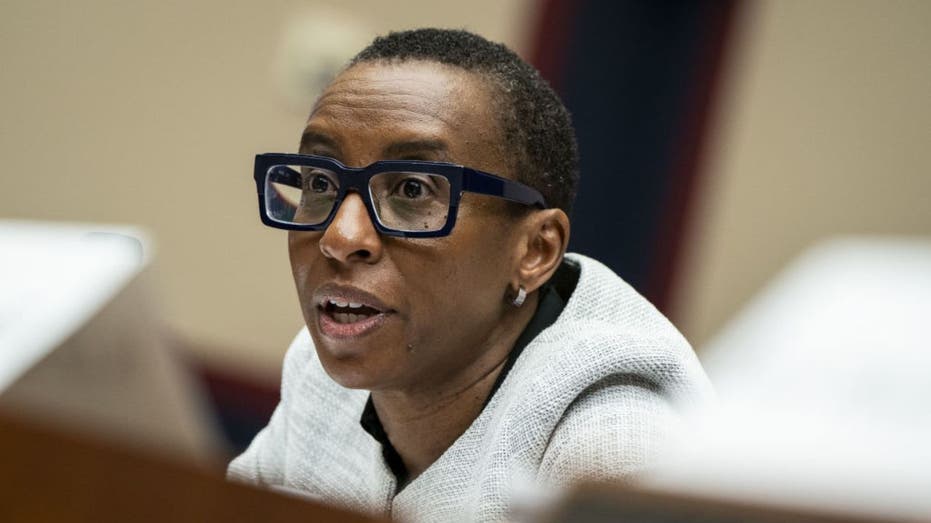The CEO of pharmaceutical giant Pfizer is slamming the presidents of three elite U.S. universities over their failure to condemn the rise in antisemitic rhetoric on their campuses in the wake of Hamas’ Oct. 7 terror attack on Israel and the ensuing conflict in Gaza.
Albert Bourla, chairman and CEO of Pfizer, took to X, formerly Twitter, to say that he was "ashamed to hear the recent testimony of 3 top university presidents" after Harvard University President Claudine Gay, Massachusetts Institute of Technology (MIT) President Sally Kornbluth and University of Pennsylvania (UPenn) President Liz Magill testified before the House Committee on Education and the Workforce on Tuesday.
"In my personal opinion, it was one of the most despicable moments in the history of U.S. academia. The 3 Presidents were offered numerous opportunities to condemn racist, antisemitic, hate rhetoric and refused doing so hiding behind calls for ‘context,’" Bourla wrote.
"The memories of my father’s parents, Abraham and Rachel Bourla, his brother David and his little sister Graciela, who all died in Auschwitz, came to mind," he explained. "I was wondering if their deaths would have provided enough ‘context’ to these presidents to condemn the Nazis’ antisemitic propaganda."

Pfizer CEO Albert Bourla said the three university presidents' failure to condemn antisemitic rhetoric during the hearing was "one of the most despicable moments in the history of U.S. academia." (Ryan Muir / New York Times / Getty Images)
"And because dehumanization of the victims makes it easier to ‘set your own context’ and justify anything, here is a picture of Graciela Bourla, who was exterminated in the concentration camp at the age of 17. Unfortunately, no pictures of my grandparents and uncle survived. I still wonder what they looked like," Bourla added in his post.
The trio of elite university presidents faced a grilling before the House panel on Tuesday. Rep. Elise Stefanik, R-N.Y., who chairs the House Republican Conference, pressed the presidents on whether calls for a "global intifada" is a call for violent armed resistance against the state of Israel and the genocide of Jews, as well as whether the rhetoric violates campus codes of conduct.

Dr. Claudine Gay of Harvard, left, Liz Magill of UPenn, center, and Dr. Sally Kornbluth of MIT are shown during testimony Tuesday. The trio of presidents said that whether calls for genocide against Jews violate university policies would depend on th (Haiyun Jiang / Bloomberg / Getty Images)
Each president said that such rhetoric would only violate campus rules if the words become conduct, which is a position they reiterated multiple times throughout the hearing in response to questions posed by lawmakers on the congressional panel.
Kornbluth said that such rhetoric would violate MIT’s policies, "If targeting individuals, not making public statements." She added that such chants "can be antisemitic depending on the context when calling for the elimination of the Jewish people," and that the campus could investigate such incidents as harassment if found to be "pervasive and severe."

Claudine Gay, president of Harvard University, issued a statement Wednesday attempting to clarify her testimony in Tuesday's hearing. (Haiyun Jiang / Bloomberg / Getty Images)
Magill said antisemitic chants create a "context-dependent" situation that would constitute bullying and harassment under UPenn’s rules if it was "directed," "pervasive" and "severe."
Gay said that whether calls for a "global intifada" constitute harassment at Harvard would depend on the "context" and if it targets specific individuals.
As the controversy over the university presidents’ responses continued into Wednesday, Gay attempted to clarify her comments in a post on X.
"There are some who have confused a right to free expression with the idea that Harvard will condone calls for violence against Jewish students. Let me be clear: Calls for violence or genocide against the Jewish community, or any religious or ethnic group are vile, they have no place at Harvard, and those who threaten our Jewish students will be held to account," Gay said in her post on Harvard’s X account.
No comments:
Post a Comment
Note: Only a member of this blog may post a comment.